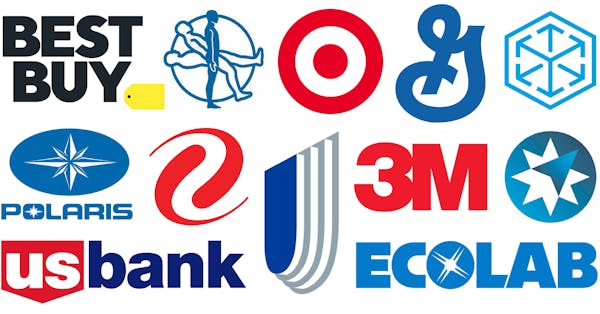The analog-to-digital change in how business gets done is the test of leadership for this generation of executives. In banking, that test became more expensive and complex over the past year — and Minnesota's largest financial institutions adapted in different ways.
Their actions shaped investor sentiment in the sector, which soured after soaring during 2017 in anticipation of the windfall they received last year from the federal tax reform. Of the state's largest financial firms, only U.S. Bancorp is worth more now than it was a year ago.
In the biggest move over the past 12 months, Wayzata-based TCF Financial Corp. agreed in January to merge with Chemical Financial Corp. of Detroit. Billed as a merger of equals, Chemical Financial bought out TCF shareholders for about $3.6 billion, and the two firms divided up the big stuff as they united. The combined firm's headquarters will be in Detroit, but it will take the TCF name and be led by TCF Chief Executive Craig Dahl. He said he plans to be in the Twin Cities a lot.
One reason the two firms were driven together, executives said, was the need to spread the rising costs of new technology across a bigger base of customers and revenue. "Scale becomes more important every day," Dahl said when the deal was announced.
U.S. Bancorp illustrates why. The Minneapolis-based owner of U.S. Bank, the nation's fifth largest, this year replaced the app that customers use for banking with a new one built from scratch. The company had 250 people work on the app's development full-time from August to March and roped in thousands more for part-time work or to test it out.
In the process, it remade its entire approach to technology projects, adopting the Agile Method process of working in incremental sprints with regular meetings to spot problems and adjust schedules. It remodeled five floors of a downtown office building for its revamped tech team.
Not every bank can afford such big investments, and the prospect looms that the banking and finance sector will become yet another where the analog-to-digital transition creates long-term winners and losers. As a result, companies are narrowing their focus to concentrate their spending.
Ameriprise, the Minneapolis-based provider of investment-advisory services, last month decided to sell its auto and home insurance business that it had been in since the mid-1980s. Chief Executive Jim Cracchiolo said the move, which will reap $1 billion, was part of a strategy to "reduce our risk profile and increase capital flexibility."
And last week, Minneapolis-based Piper Jaffray decided to exit the asset-management business, saying it would have required "significant investments" to build it into a sizable part of the overall company.
Piper Jaffray is primarily an investment bank but expanded into asset management for wealthy individuals in 2010. It will get about $60 million from selling off the business. CEO Chad Abraham said it would "reinvest the capital from this sale in our core areas of expertise."
![The interior of the TCF branch on W. 50th St. Monday afternoon. ] JEFF WHEELER • jeff.wheeler@startribune.com TCF announced today that it was m](https://arc.stimg.co/startribunemedia/UPXZMXOKFWNZEF3QFWNMGOZWKY.jpg?fit=crop&crop=faces&w=550&&auto=format)


![Capella Tower at 225 South Sixth St. Tuesday September 6, 2011. ] GLEN STUBBE * gstubbe@startribune.com Minneapolis skyline from the 51st floor of IDS](https://arc.stimg.co/startribunemedia/7C263DJZQTPRDEXI74SMH2M3HI.jpg?w=75&h=75&fit=crop&crop=faces)

